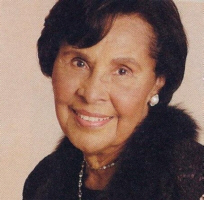|
Ada C. Anderson Austin, Texas AUSTIN WOMAN magazine referred to Ada C. Anderson as "Austin's Cultural Arts Doyenne." She is a member of the Austin Arts Hall of Fame and has dedicated her life to opening doors of opportunity for all of Austin's citizens. Among her many awards and accomplishments is her induction into the Alumni Hall of Fame of the Austin Independent School District, the Leadership in Civil Rights Award by the LBJ Library and the LBJ School of Public Affairs, the Henry Gonzales Award by the Texas Civil Rights Project, membership in UT's Commission of 125, the Whitney M. Young Award by the Austin Urban League, and the Most Worthy Citizen Award by the Austin Board of Realtors Source: AUSTIN WOMAN, story by Deborah Hamilton-Lynne and photos by Mary Bruton, November 2006.
|
Before Brown: Heman Sweatt, Thurgood Marshall and the Long Road to Justice Remembering Heman Marion Sweatt by Ada Anderson Austin, Texas In the fall of 2010 The University of Texas Press will release a book about the integration of the University of Texas Law School. The central figure during this struggle for justice was a kind and gentle mail carrier from Houston named Heman Marion Sweatt. While it is true that in recent years Sweatt has been honored by having a courthouse named for him, and at UT there are Heman Sweatt symposiums, buildings, historical plaques, and scholarships, the full story of this remarkable man has never been told—until now.
In his new book Before Brown: Heman Sweatt, Thurgood Marshall and the Long Road to Justice, Gary Lavergne gives all Texans a great gift: he has introduced us to an unsung giant in the struggle for full citizenship rights for African American Texans. It was Heman Sweatt who confronted powerful politicians with an application to UT Law when it was illegal, unconstitutional, and even dangerous to do so. For more than four terrifying years, with courage and determination, he simultaneously faced heart-breaking personal problems, hatred from white segregationist, hostility from some at the university, and painful divisions within his own Texas African American community.
Lavergne’s masterful portrait of Thurgood Marshall, the Chief Counsel of the NAACP who took Sweatt’s case to the US Supreme Court, is a tribute to a remarkable lawyer who led us as Americans to BROWN v BOARD OF EDUCATION. But before BROWN, there was SWEATT v PAINTER, and it was Heman Marion Sweatt who was the first African American to be ordered admitted to an all-white institution in spite of the separate-but-equal laws. Marshall’s life in Austin is particularly poignant in this book. For me it brought back memories of Austin in the 1940s and 50s and of people I knew like Dr. Lewis Mitchell and his wife Carolyn, who opened their home to Thurgood Marshall because there were no acceptable public accommodations for African Americans. In BEFORE BROWN Thurgood Marshall emerges as a driven warrior who kept his eye on the prize. As Lavergne correctly points out, “[Marshall] never answered racism with more hatred, nor did he ever believe his opponents were fools. That would have prevented him from seeing what was going on in their minds.” It was the Thurgood Marshall I remember. Heman Sweatt’s case is still cited today in civil rights and affirmative action cases before our courts. Gary Lavergne tells it all in an impressively documented and rigidly fair narrative that should be read by all Americans.
BEFORE BROWN :Heman Sweatt, Thurgood Marshall and the Long Road To Justice | Gary's Bio |Before Brown| Worse Than Death| Bad Boy From Rosebud | Sniper in the Tower | Cajuns | |


